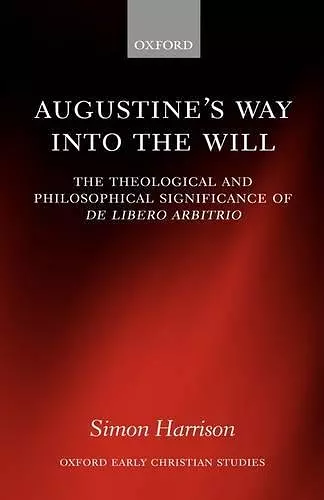Augustine's Way into the Will
The Theological and Philosophical Significance of De libero arbitrio
Format:Hardback
Publisher:Oxford University Press
Published:2nd Nov '06
Currently unavailable, and unfortunately no date known when it will be back

Augustine's dialogue De libero arbitrio (On Free Choice) is, with his Confessions and City of God, one of his most important and widely read works. It contains one of the earliest accounts of the concept of 'free will' in the history of philosophy. Composed during a key period in Augustine's early career, between his conversion to Christianity and his ordination as a bishop, it has often been viewed as a an incoherent mixture of his 'early' and 'late' thinking. Simon Harrison offers an original account of Augustine's theory of will, taking seriously both the philosophical arguments and literary form of the text. Relating De libero arbitrio to other key texts of Augustine's, in particular the City of God and the Confessions, Harrison shows that Augustine approaches the problem of free will as a problem of knowledge: how do I know that I am free?, and that Augustine uses the dialogue form to instantiate his 'way into the will'.
Harrison's detailed attention to the text Lib. Arb., and in particular, to 1.12.25, is reminiscent of Jane Austen's description of 'the little bit (two inches wide) of ivory on which I work with so fine a brush'. The labour, however, is a rewarding one, demonstrating why for Augustine the reality of the human will is and remains undeniable, and showing us teh connectiions he drawsbetween the human will and our capacities to think and know. * Edward Dowler The Journal of Theological Studies *
ISBN: 9780198269847
Dimensions: 223mm x 140mm x 18mm
Weight: 381g
208 pages